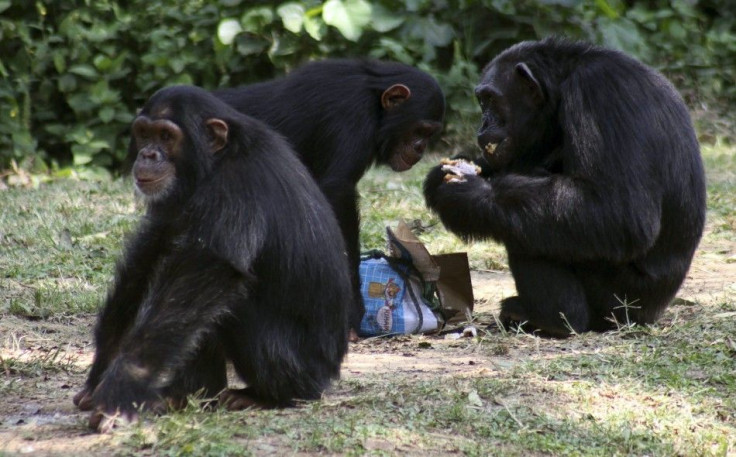Junk DNA Makes Humans Different From Chimpanzees: Scientists

It's been a known fact that humans and chimpanzees share approximately 99 percent of the same DNA, making us closely related to these apes. Why don't we look anything like these relatives? The reason, scientists say, is because of the junk, or non-coding DNA.
These DNA sequences are traditionally dismissed, because they had no obvious biological functions or connections. Non-coding DNA do not code protein sequences, which means that they don't directly affect our genes are expressed. They can, however, have indirect effects like Georgia Tech researchers have found.
Scientists believe these sequences explain why humans and chimps differ in appearances. It's true that our genes are identical for the most part, but there are also gaps in the genomes. As junk DNA are inserted and deleted throughout, these so-called gaps are created. This effect turns on or turns off certain parts of the genome. Because these react very different in humans and chimps, the similar genomes of our two species can produce organisms that look different from each other.
Biology professor John McDonald's team looked closely at genomic gaps in both humans and chimps. After examining these retrotransposons (series of non-coding DNA), the researchers found that results were consistent with their theory. Almost half (42 percent) of the human genome is composed of retrotransposons, and the percentage differs slightly with most other mammals at around 45 to 48 percent.
The new research confirms that differences in these gaps have a strong correlation with differences in their gene expressions. The overall finding thus suggests that our physical appearances differ because of changes in gene regulation, rather than changes in the genes themselves.
As a whole, scientists say that the majority of those differences are biologically insignificant, but some research suggest a couple thousand of these differences could explain more about our evolution as the human species.
Chimpanzees have long been an ideal experimental subject for research because of their closeness to our species. In fact, they have played a key role in helping us understand what differentiates us humans from other animal species out there. In some cases, we are even trying to investigate how to stop the spread of conditions like HIV.
© Copyright IBTimes 2024. All rights reserved.





















